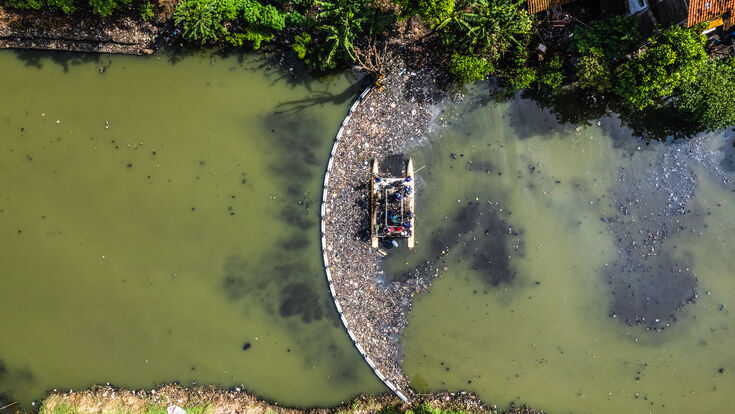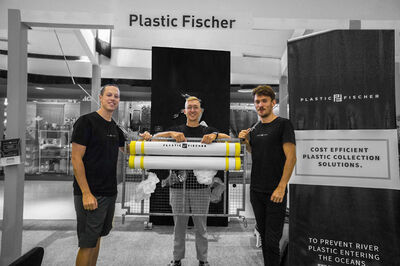Plastic pollution : Trash Boom: A new technology to stop marine littering

How to make this world better? That is the big question the student competition "Prototypes for Humanity" is trying to find an answer to. The interest was enormous worldwide and shows that there is that a great deal of inventiveness and innovative ideas to be found among young researchers. Hundreds of entries were submitted by 450 universities from over 100 countries. The top 100 hundred projects that address the social and environmental impact on the world were chosen for the big Prototypes of Humanity exhibition in Dubai.
Among them in the field of "Climate Tech" is the technology for “TrashBoom” invented by German student Moritz Schultz together with Karsten Hirsch and Georg Baunach from the Bergische Universität Wuppertal. This floating barrier prevents plastic waste from rivers from entering the oceans. It is inexpensive and can be easily made from locally procured materials. This will drastically reduce the eight to twelve million tonnes of plastic that currently end up in the world's oceans every year.

Daily waste collection
The idea came up on a trip to Vietnam after seeing tons of trash floating on the rivers and subsequently entering the ocean on a daily basis. After completing the pilot project, the company Plastic Fisher was founded in 2019 and shortly after the first TrashBoom was established in Bandung, Indonesia.
According to co-founder Moritz Schulz, three factors were crucial to the success of Plastic Fisher: The usage of local materials, simple technology and local employees for the construction and operation of the TrashBoom and deploying the technology as open source in order to build as many barriers worldwide as possible as well as close operation with other organizations around the world.
The plastic is manually collected from the systems on a daily basis and brought to sorting facilities. All recyclables are reintroduced into the supply chain. Unfortunately, the vast majority of the collected material is not recyclable and is sent to thermal processing at certified incineration plants.
Nevertheless, the end results are great: By the end of 2022, TrashBoom has created a total of 63 local jobs in six locations with a total of 23 systems, that collected more than 340 tons of waste - the trend is rising.






